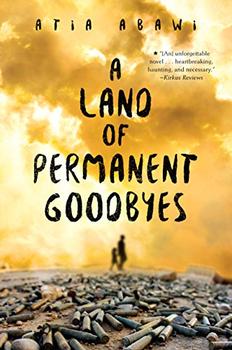Summary | Excerpt | Reviews | Beyond the book | Read-Alikes | Genres & Themes | Author Bio

Faith. It's a word that we often hear. For many, it is what guides their religious selves, and it motivates them to find that which they seek. It doesn't just inspire their lives – it is their lives. In Jon Walter's debut young adult novel, My Name is Not Friday, which is set in Mississippi during America's Civil War, Samuel, a freeborn black orphan, displays just how important his faith is. Without it – well, without it, Samuel's story would be very different from the one Walter shares with us.
When we meet Samuel, his mother is dying. And then Samuel is alone in the world except for the company of his younger brother, Joshua. Both boys wind up together at an orphanage for "colored" boys. The man in charge, Father Mosely, rules with an iron fist. He demands respect at all times, and the old man has little tolerance for childish antics. It's really no surprise what happens; I mean, when there are young people around, antics are going to happen.
Samuel is the good brother. He's quiet and sensitive. He prays fervently and believes that God will watch over him and Joshua. When one of the boys at the orphanage commits a vulgar act against God and Father Mosely, Samuel takes the blame, and he takes it without much thought of punishment: "God ain't gonna hurt me, I can be sure of that, 'cause I've always been a good boy."
What follows are multiple episodes of separation and abuse. Samuel is sold into slavery, and his "boyhood" begins to fade away. His transformation begins when a man who helps sell Samuel says, "Tomorrow is Friday. Now, you better remember that day real good 'cause from now on, that's gonna be your name." Is there a more basic principle of selfhood than one's name? Another belittling fact of Samuel's new life as a slave is that his master "don't even look as old" as him. Samuel remarks, "He owns me body and soul, and my worth has been set at six hundred dollars."
Samuel soon finds himself on a plantation. He works the fields. His meals aren't filling. He watches people that he comes to know as family be beaten and mistreated time and time again. Throughout all of the horrendous moments on the plantation, Samuel remains devoted to God and to the hope of being reunited with his brother.
If My Name is Not Friday sounds difficult, it's because it certainly is. It has to be. This is an important novel, and one that demands readers' compassion to build until it crescendos in the novel's closing act.
Biblical scripture and allusions fill Walter's novel, and one of the greatest successes of the book is how Samuel metaphorically functions as Moses. It's early in My Name is Not Friday when Samuel admits, "I could be Moses. I really could." Like Moses, Samuel preaches the law, and he talks to God. However, the most direct link is how Samuel leads his enslaved comrades in a march for freedom. It's Father Mosely who tells Samuel that he has "what it takes to be a leader of men." Samuel teaches the other slaves, both young and old, to read. He wants them to be prepared when their time comes to prove that they are intelligent and capable of living outside of the fields. Walter's handling of Samuel's religion is precise and rather poignant. It always feels sincere.
Walter also illustrates clearly how sacrifice can sometimes be necessary. Sure, it can be difficult – Samuel lives one of the most horrifying experiences imaginable, but the young boy never seems to doubt what he is doing. He's strong, and he knows it. He has God. He has the drive to get back home. Samuel knows that if his brother were in his shoes, poor Joshua would likely never make it back home. Samuel's sacrifice, at least to himself, is worth it.
My Name is Not Friday feels necessary. Walter has crafted a wonderfully moving young adult novel that deserves mentioning alongside M. T. Anderson's recent classic Octavian Nothing books.
![]() This review was originally published in The BookBrowse Review in January 2016, and has been updated for the
May 2017 edition.
Click here to go to this issue.
This review was originally published in The BookBrowse Review in January 2016, and has been updated for the
May 2017 edition.
Click here to go to this issue.

If you liked My Name is Not Friday, try these:

by Mark Oshiro
Published 2019
A story of resilience and loss, love and family, testifying to the vulnerability and strength of a community living within a system of oppression.

by Atia Abawi
Published 2019
Narrated by Destiny, this heartbreaking - and timely - story of refugees escaping from war-torn Syria is masterfully told by a foreign news correspondent who experienced the crisis firsthand.
Your guide toexceptional books
BookBrowse seeks out and recommends the best in contemporary fiction and nonfiction—books that not only engage and entertain but also deepen our understanding of ourselves and the world around us.